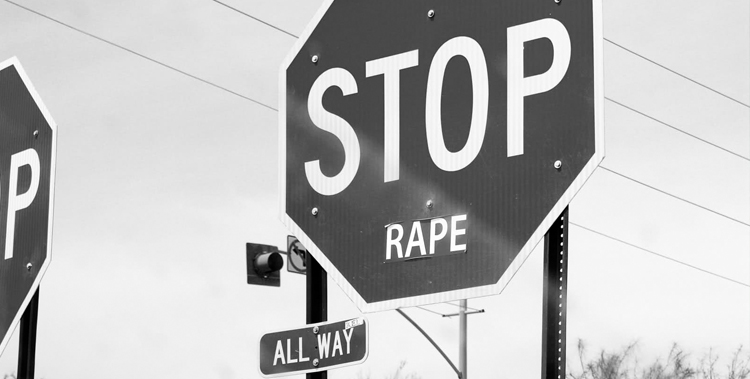Africa’s ‘Demographic Dividend’: The Youth Will Decide
Africa is said to be reaching a demographic Goldilocks moment. Could this youth bulge lead to an African Spring?
By Robert Bates originally posted in ThinkAfricaPress
Africa’s age structure is said to be reaching its ‘Goldilocks moment’ where things are ‘just right’. Falling birth and mortality rates mean there are more people of working age than ever before and fewer dependents for them to support. In the past, whensimilar situations have arisen elsewhere, this ‘demographic dividend’ resulted in economic booms.
But what will Africa’s ‘demographic dividend’ bring? Good things of bad things? More young people = more workers = economic growth = good, yes? But what if that growth isn’t distributed fairly? What if there aren’t any jobs for these ‘workers’? And don’t bigger populations exacerbate or create conflict over land, worsen environmental degradation, and increase the likelihood of famine and disease? Won’t all that lead to more uprisings? And don’t uprisings lead to instability and instability to conflict?
Getting down to business
This kind of questioning could continue ad nauseam and ad absurdum. Still, however facetiously that list comes across, as a caricature it illustrates three serious points.
Firstly, good/bad binaries are unhelpful; they gloss over the dynamics at play and substitute analysis for moral judgement. Secondly, much writing on the topic derives from outside-in, top-down perspectives. Some seems less concerned by what young Africans want or need and more by how the outside world can capitalise, and tend to downplay the agency of African youth.
The problem with both these tendencies in the literature is that it’s not at all clear that young Africans want change on someone else’s terms, and it’s they who will have the greatest effect on Africa’s ‘demographic dividend’, because they are the dividend.
Thirdly – and this should be obvious – no-one really knows what’s going to happen. This is partly because no one ‘really knows’ what’s happening now: the statistics are contested. Prognostication is further complicated by the vastness and diversity of Africa – not to mention the debates over whether Africa is or isn’t “Rising”.
In any case, the outcome of Africa’s ‘demographic dividend’ depends less, if at all, on some commentators’ perspicacity (or lack thereof) and far more on what young Africans actually want – and how far they are able to realise those wants.
The time of youth?
Notwithstanding all those reservations, some clues emerge as to what will happen when researching what already is. In her book, The Time of Youth, Alcinda Honwana characterises the situation many young Africans find themselves in as ‘waithood’. By ‘waithood’, she refers to a period of suspension between childhood and adulthood where youths are not yet fully independent. They are thus suspended, she argues, because there are too few stable jobs. Without them, young people can’t support themselves, let alone a family, and therefore cannot perform all the functions ‘normal society’ expects of them. She places much of the blame for this situation on the neoliberal policies of international financial institutions, bad governance, and political instability.
Honwana conducted hundreds of interviews with young Africans while researching and writing her book. From these, she concludes that young Africans are “deeply disillusioned and sceptical” about the future. For example, Moustapha, from Senegal, told Honwana, “The government is not helping young people at all…They build huge and expensive highways and monuments rather than using the money to create opportunities for young people.”
Often, the problem seems to be less that they can’t find jobs at all, but that these jobs are too low paid, unstable, dangerous, or exploitative to fulfil their needs and expectations. Zeinab, for instance, a 24-year-old from Tunis, was denied payment for some call-centre work: “I was furious! They took advantage of me because they know we [young people] need jobs”. Some become so exasperated by their situation they try to immigrate to Europe. Abdoulaye, a 24-year-old from Senegal, spent years saving for the long, dangerous (and illegal) journey from Senegal to Morocco to Spain, but stopped near the Canary Islands due to a heightened coastguard presence and extreme weather. Abdoulaye had to return home. Honwana’s book is littered with such accounts.
As well as Honwana’s research, the increasing incidence of youth-led protests across Africa points to widespread discontent. Those of Tunisia, Egypt and Libya are only the best-known. To that list, we can add South Africa, Mozambique, Uganda and, more recently, Guinea and Djibouti, among others. Some of these protests have been over joblessness, many over political and socio-economic grievances more broadly; whatever their ‘main causes’, African youth is spearheading protest on a scale not seen for decades.
Despite the problems they face, then, young Africans (and, to varying degrees, their peers elsewhere in Europe and Latin America) are not just sitting around. Many are organising or participating in protests, while most are working hard to ‘just get by’. For a lack of alternatives, they take low-paid, unstable work to support themselves financially, and carve out social and political spheres outside established channels. So while the young people Honwana spoke to seem positive about their generation’s capacity to improve things, not much hope is held out for that of their political leaders. Africa’s gerontocracies are not delivering what African youth want; more stable jobs, of course, but a fairer system of political, economic and social relations as well.
So what ‘should’ be done?
It is not for Western journalists to spout policy recommendations at Africans. In any case, two of the most important international organisations, with respect to youth unemployment in Africa, have already offered such guidance. “The youth unemployment problem in Africa”, argued theInternational Labour Organisation (ILO) recently, is “more of quality (underemployment, vulnerability and working poverty) than quantity”. This seems to tally with what the young people interviewed by Honwana were saying: more jobs, yes, but more importantly, better ones too. Similarly, the African Development Bank (AfDB) regards stable job creation, when tied to that other panacea – education – as essential to achieving the ‘demographic dividend.’
However, stable job creation will be much more difficult than the ILO and AfDB allow. To do this on the scale required, policy-makers and businesspeople will have to develop large labour-absorbing industries. In the past elsewhere, this meant a huge expansion of manufacturing. Indeed, the ILOrecently recommended sub-Saharan Africa make “more explicit efforts towards industrialisation”. But for that to happen, two things have to occur first: training/education of young people, and land clearances. Most already know how important education is. The latter, however, is rarely talked about.
Land clearances are crucial for manufacturing for two reasons. First, factories need a lot of land to operate. Not only do they need the physical space for factory buildings, accommodation for workers, roads to take products to market, but also factories often make requirements of the surrounding environment. Water tables can be diverted for factory use, or polluted by effluent, agricultural land can be converted to provide industrial inputs and so on. Second, land clearances reduce people’s ability to live independently of waged-labour; they have no fall back to being ‘subsistence farmers’ if they have no land and are unable to meet their needs except through market exchange for their labour. They would then have to work in factories, regardless of whether they wanted to or not, because, to hijack Margaret Thatcher’s phrase, “there [would be] no alternative”. Land clearances would guarantee factories a sufficient amount of willing labour. But, any discussion of land rights in Africa is already extremely sensitive and major concerns are being raised over the effects of land clearances.
These costs, concerns and constraints may explain the focus on primary sector (extractives, minerals, oil) and tertiary sector (services, retail, tourism, finance) industries, rather than secondary sector manufacturing in many countries across Africa. Unfortunately, neither primary nor tertiary sector industries seem to be creating enough stable jobs for young Africans. Telecoms and IT might continue to expand and allow Africa to leapfrog the industrialisation stage of development usually presented as ‘necessary’, but this not happened on a large enough scale – yet.
The recommendations of the ILO and AfDB reflect an epistemology of development where Western nations have already mapped out how to ‘achieve development’, and all Africa needs to do is follow the same path. This does not have to be the case. Africans are perfectly capable of representing themselves and developing in ways of their own choosing. The African diaspora is making massive contributions to their countries-of-origin, not just in terms of sending back money (about $50 billion annually), but also in terms of reclaiming the development discourse. Together with Africa’s youth, the diaspora will be at the forefront of deciding what should be done. In turn, perhaps the first thing international aid and financial institutions, and African political and business leaders should do is consult with Africa’s youth and the African diaspora far more widely than they are at the moment.
So what will be?
The Economist is right to argue that Africa will probably get neither “miracle” nor “Malthus.” Those are their terms for the two possible ‘extreme’ outcomes of the demographic dividend: either more jobs are created and African youth is reconciled to the current political, economic and social order, or not enough jobs are created and the situation persists, youth becomes increasingly restless, and rebels.
If “Malthus” happens, perhaps ‘New barbarism’-style reporting will again dominate Western media, just as it did in the 1990s (and as it lingers in certain quarters). Shortly thereafter, demands for military intervention from Western conservatives (on dubiously-presented national security grounds, like UK Prime Minister David Cameron’s “existential threat” argument) would dovetail with those of Western liberals (on humanitarian grounds; “we have a responsibility to protect”), just as they have over the past decade or so. The consequences of that, it almost goes without saying, could be dire.
The Economist leans towards the former prognosis. I do not. But I do not see the “Malthus” outcome in such bleak terms.
Broadly speaking, large sections of African youth are already restive. This is partly because they want more and better jobs, but also, more generally, because they are confronted by political, economic and social conditions they cannot abide. These jobs are unlikely to be created or improved on the scale they need or expect, and the status quo is unlikely to be changed by those most interested in preserving it – the current generation of political and business elites. Eventually, therefore, Africa’s youth might demand transformative change. This could be as ‘limited’ as the toppling of a few presidents and/or the incorporation of a few youths into extant political structures, or as ‘revolutionary’ as we’ve already seen in Tunisia, Egypt and Libya. On this basis – fragmented and inconclusive as it is – there may well be some kind of ‘Arab Spring’ throughout the rest of Africa.
Of course, any number of history-changing events might occur that are as currently unforeseeable. These are tentative speculations based on what evidence there is for events that haven’t happened yet: we can locate these things somewhere towards the latter end of Rumsfeld’s “known unknown/unknown unknown” continuum. But there are reasons to be hopeful. Perhaps the ‘Arab Spring’ and all those youth protests will catalyse more pro-active measures that fulfil the wants and needs of young Africans. Perhaps, moreover, tertiary sector industries will expand more rapidly than I suggested above. And, if neither of those things happens, African youth have already demonstrated their power to bring about positive transformative change, more or less on their own. So there is cause to be upbeat about the capacity of African youth to achieve the ‘demographic dividend’, and to change the status quo. They can do it – and on their own terms.










